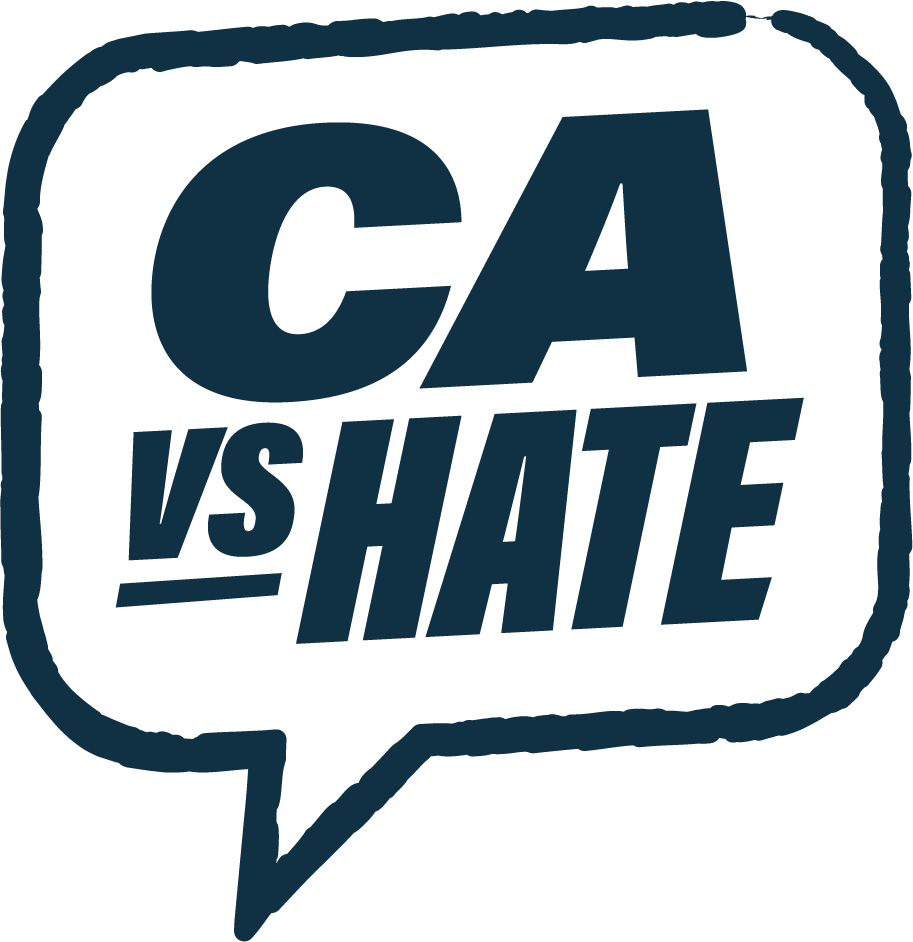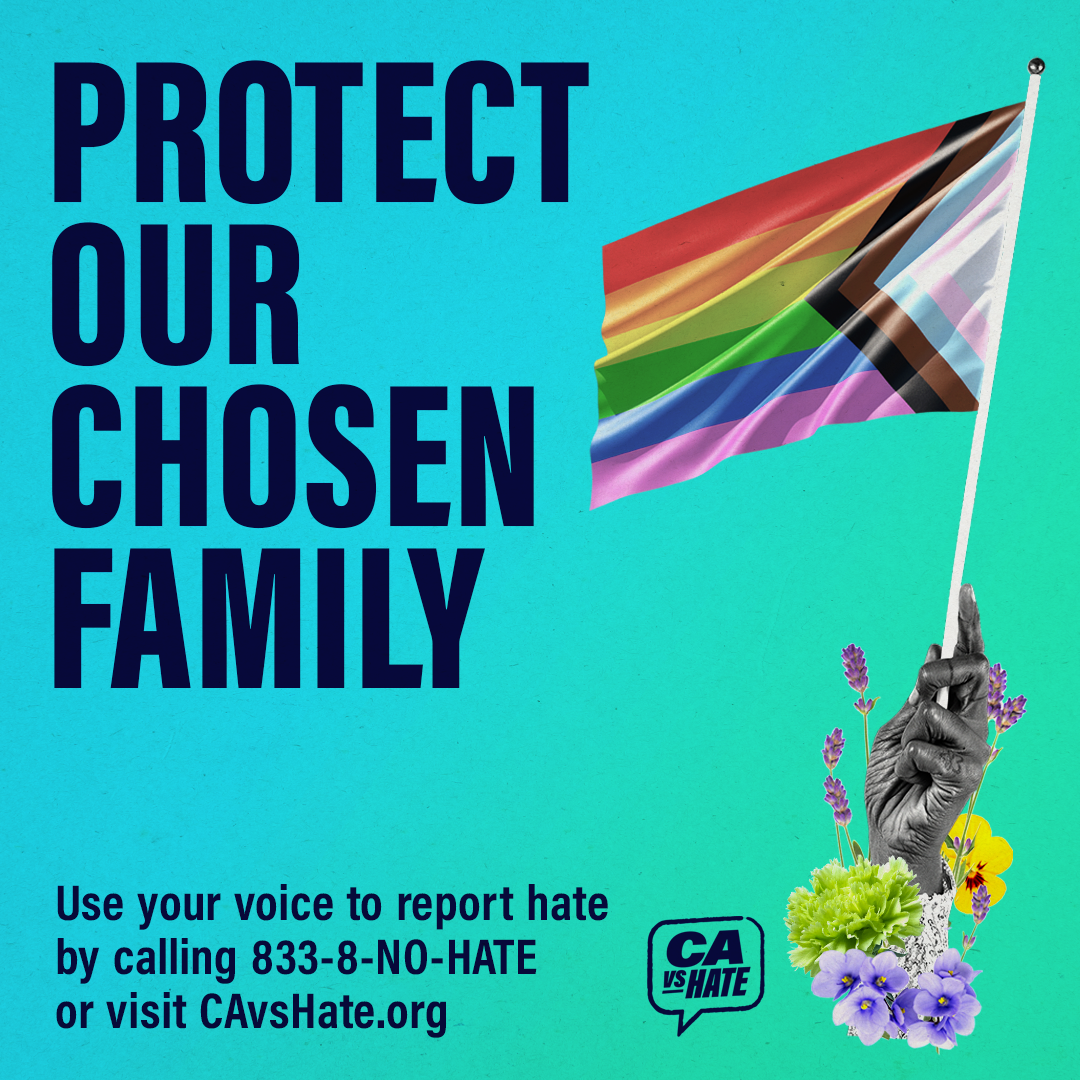Partner Spotlight: How the Los Angeles LGBT Center Supports Victims of Hate
California vs Hate works with organizations across the state to provide support and resources that cater to specific communities and their needs. Today, we wanted to spotlight the Los Angeles LGBT Center, an organization which has cared for, championed, and celebrated LGBT individuals and families in Los Angeles and beyond since its establishment in 1969. The Center is a subcontractor with 211, providing direct services and support to victims of hate who report through the California vs Hate hotline.
We spoke with Ariel Bustamante, Capacity Building Manager, about the organization’s commitment to serving the LGBTQ+ community and victims of hate, what the center has been celebrating during Pride, and how allies can best support the community in a national climate that continues to elevate disparagement of LGBTQ+ people.
Tell us about your organization and how it serves the LGBTQ+ community.
As the largest LGBTQ+ organization in the world, the Center's nearly 800 employees provide services for more LGBT people than any other organization in the world, offering programs, services, and global advocacy that span four broad categories: Health, Social Services and Housing, Culture and Education, and Leadership and Advocacy.
Through our partnership with California vs Hate, our RISE Training & Technical Assistance program is providing the tools needed to provide culturally responsive and affirming services to LGBTQ+ people witnessing or experiencing an act of hate. Working nationally with individual providers, caregivers, and agencies at large, RISE provides training, coaching, and technical assistance to enhance implementation of best practices in serving the LGBTQ+ community. Independently researched and evaluated, RISE training is evidence-informed and has been shown to significantly improve participant knowledge and understanding of LGBTQ+ relevant concepts and best practices.
As one of CA vs Hate’s partners that provides resources and care to those who report hate, can you walk us through the services and care you provide to a victim or witness of an act of hate?
For individuals local to the Los Angeles area, we are able to connect folks to a wide variety of services, in multiple languages, and across age ranges such as health services including mental health counseling and treatment, legal services including advocacy and law enforcement liaising, and emergency and long-term housing support.
With 10 locations throughout Los Angeles, including Mi Centro in Boyle Heights, Center South in Leimert Park, and the Trans Wellness Center in Koreatown along with an abundance of virtual services, our goal is to be able to provide the services someone needs after an act of hate as well as to be healthy, equal, and complete long-term. This means providing trauma-informed care at low or no cost through one of our sites or by connecting folks to one of our many close community partners.
For individuals outside of Los Angeles, we work extensively with our CenterLink and statewide partners to identify and connect folks to safe and affirming providers in their area.
Why do you think people in LGBTQ+ community might be hesitant to report acts of hate and what do you think can help change that?
We’ve seen an increase in anti-LGBTQ+ rhetoric and acts of hate across the country, including in California with much of the harmful language and even legislation being directed at transgender and nonbinary folks. At the same time, LGBTQ+ folks and even more so LGBTQ+ BIPOC have often been historically underserved by service providers so there is often a lack of trust that services will be safe, affirming, and responsive. This is especially true when there is the possibility of the legal system being involved.
As such, it is critical that providers are clear about their capabilities and limitations, and work to bridge gaps in their agency’s capacity to serve LGBTQ+ folks. LGBTQ+ people are everywhere and are accessing services across the state, so it’s important that agencies understand that and establish best practice knowledge and skills to serve the community. Agencies should also be versed in providing appropriate referrals.
In addition to transparency and commitment to growth, it is important that witnesses or victims of an act of hate understand that law enforcement do not need to be involved for them to receive supportive care. This can relieve the fear an individual may have based on personal or historical experiences with law enforcement while reinforcing their dignity and autonomy.
We’re at the end of Pride month. What were you / your organization excited to celebrate this year? What issues impacting the LGBTQ+ community do you think allies should be paying attention to?
At the Center, we celebrate Pride year round by recognizing the contributions of LGBTQ+ people and elevating the needs of the most vulnerable community members. While we have seen a dangerous increase in anti-LGBTQ+ messaging and acts, we have also seen countless examples of our community’s strength.
Most recently, we celebrated Trans Pride Los Angeles over the course of two days, which welcomed transgender and nonbinary folks of all ages and their supporters in unprecedented numbers. Throughout the year, we will continue to uplift the community through services, campaigns, and events such as Models of Pride — the world’s largest conference for LGBTQ+ youth and their allies — in October.
Through our California vs Hate partnership, we encourage allies to be visible and be vocal. LGBTQ+ people, particularly youth in schools, BIPOC, and trans and nonbinary folks continue to be targeted and allies are essential in helping keep the community safe. Folks from Los Angeles and beyond can join the fight by connecting with the Center’s Resistance Squad, a team of community organizers fighting to protect and expand the rights of the LGBTQ+ community: https://lalgbtcenter.org/resist.
For more information about the RISE program visit www.riselgbtq.org

